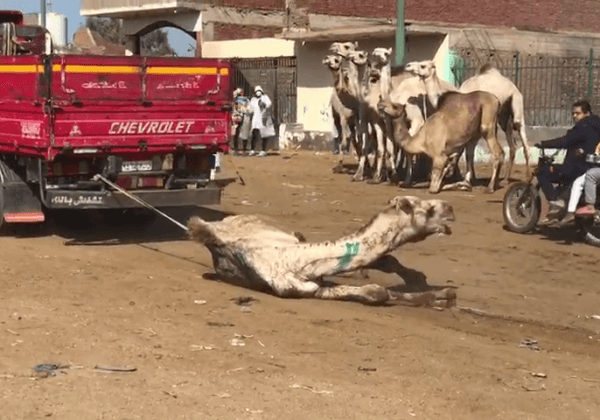Elephants Have a Remarkable Start to 2018 as China Bans Ivory Sales
China has proved that anything can happen in the new year: Once a powerhouse in the commercial ivory trade, the nation has officially banned all domestic sales and processing of ivory and its products.
China ban on ivory sales begins Sunday, aims to curb elephant poaching https://t.co/u9Mb6EAEBh pic.twitter.com/J9L2g976E5
— Reuters Top News (@Reuters) December 29, 2017
Despite international bans on ivory for more than 25 years, this blood product has fueled elephant poaching by people who pass off illegally obtained ivory as legitimate. In fact, wildlife specialists believe that roughly 30,000 African elephants are illegally killed each year. While shipments of ivory into China have decreased significantly in the past few years, international illegal ivory shipments were confiscated in record numbers in 2016.
For decades, China led the world in using elephant tusks, and experts estimated that 70 percent of all ivory ended up there. It’s been used as a status symbol among the rich, while others believed falsehoods about its medicinal properties and ability to bring good luck.
State media have noted that China initiated “one of the largest ever public awareness campaigns” to combat misinformation regarding the cruelly obtained product.
Basketball star Yao Ming joins calls to stop ivory trade, as China ban set to kick in this Sunday https://t.co/QUBJVs7c2V @StopIvory @alexhofford @wwfhk @WildAidHK @WildAid @HSIGlobal @yaoming @elliengn pic.twitter.com/mMqI9lpM3M
— Hong Kong Free Press (@HongKongFP) December 27, 2017
Many of China’s 172 ivory-carving factories and retail outlets have been shutting down since early 2017, when the country first promised to ban ivory. However, animal rights activists are concerned because the new ban doesn’t include Hong Kong, China’s largest ivory market and a substantial trader of the product for more than 150 years. Hong Kong’s legislature is expected to vote on a ban early this year.
We condemn the killing of elephants for their tusks in the strongest terms possible. But we must also take a long hard look at the way elephants are chained, beaten, and neglected in Asia and around the world.
Those who are used in circuses are forced to perform confusing tricks under the threat of being tortured with sticks, bullhooks, and whips.
Elephants are meant to roam quiet landscapes with their relatives, not to be trapped in crowded arenas with blaring music and thousands of rowdy humans.
What You Can Do
Help all animals, including elephants, by steering clear of any zoo, marine park, or circus that keeps them confined in unnatural circumstances for profit.









